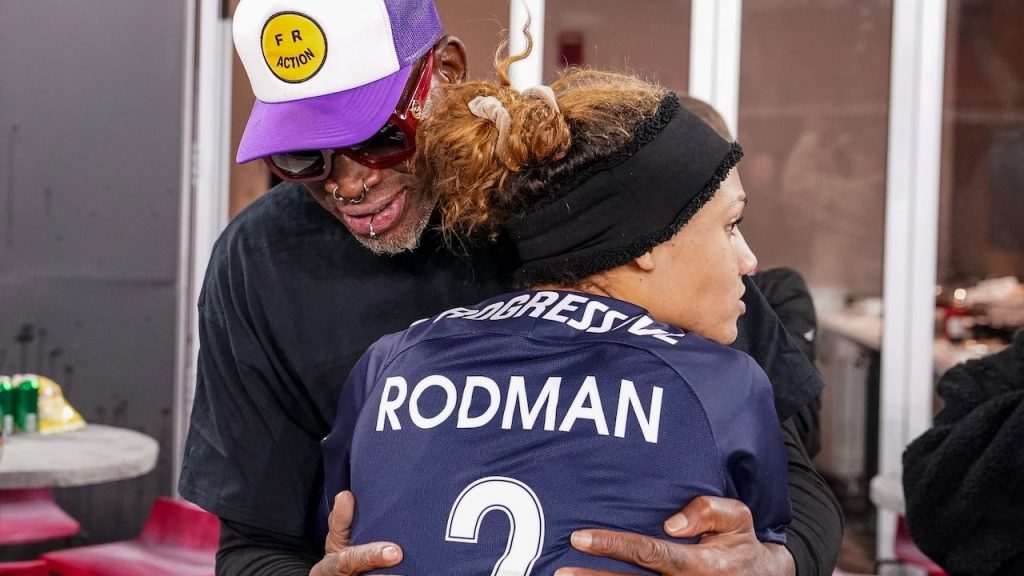The complex relationship between basketball legend Dennis Rodman and his daughter, Trinity, a rising star in professional soccer, has taken center stage after Trinity’s candid interview on the “Call Me Daddy” podcast. During the interview, Trinity frankly discussed the strained nature of their relationship, describing her father as “extremely selfish” and lamenting the emotional toll his behavior has taken on her. This public airing of family matters prompted a response from Rodman, who took to Instagram to apologize to Trinity and express his ongoing desire for a closer relationship.
Rodman’s Instagram post, while acknowledging his shortcomings as a father, conveyed a sense of persistent effort to connect with Trinity. He admitted his failure to meet her expectations of fatherhood but emphasized his continued attempts to be present in her life. The former NBA star expressed his yearning for communication from his children and the simple wish for them to call and visit him. He also revealed that despite perceived obstacles, he actively follows Trinity’s soccer career, even recounting an instance where he watched her play from a hotel balcony to avoid causing discomfort due to his companions. Rodman concluded his message with a declaration of love for all his children.
Trinity’s podcast appearance painted a picture of a daughter grappling with conflicting emotions towards her father. While acknowledging his personal struggles, she expressed frustration at constantly feeling compelled to offer him sympathy. She characterized him as self-centered, suggesting that his actions are often motivated by a desire for attention and the spotlight. Trinity detailed how Rodman’s behavior, including bringing his children onto the stage for public display, has contributed to the emotional turmoil she has experienced. Her words suggested a deep sense of hurt and the difficulty of reconciling with a parent whose actions have caused significant pain.
The contrast between Rodman’s public apology and Trinity’s candid portrayal of their relationship highlights the complexities of familial dynamics, particularly within the public eye. Rodman’s message seeks forgiveness and emphasizes his ongoing efforts to connect, while Trinity’s words express a deep-seated hurt stemming from years of perceived selfishness and emotional manipulation. This public exchange lays bare the raw emotions involved and the challenges of navigating strained relationships, especially when one party has a history of public persona and controversial behavior.
The situation underscores the multifaceted nature of parent-child relationships and the lasting impact of parental actions on children. While Rodman’s public apology might be perceived as a step towards reconciliation, Trinity’s words suggest that healing and rebuilding trust will require more than a social media post. The path towards mending their relationship may be long and arduous, requiring both parties to confront past hurts and work towards open communication and understanding.
Ultimately, the Rodman family dynamic serves as a reminder of the deeply personal nature of family struggles. While their story unfolds in the public arena, the core issues of hurt, forgiveness, and the desire for connection are universal. Whether their relationship can be repaired remains to be seen, but their story serves as a testament to the complex and enduring nature of family bonds and the ongoing quest for reconciliation.

